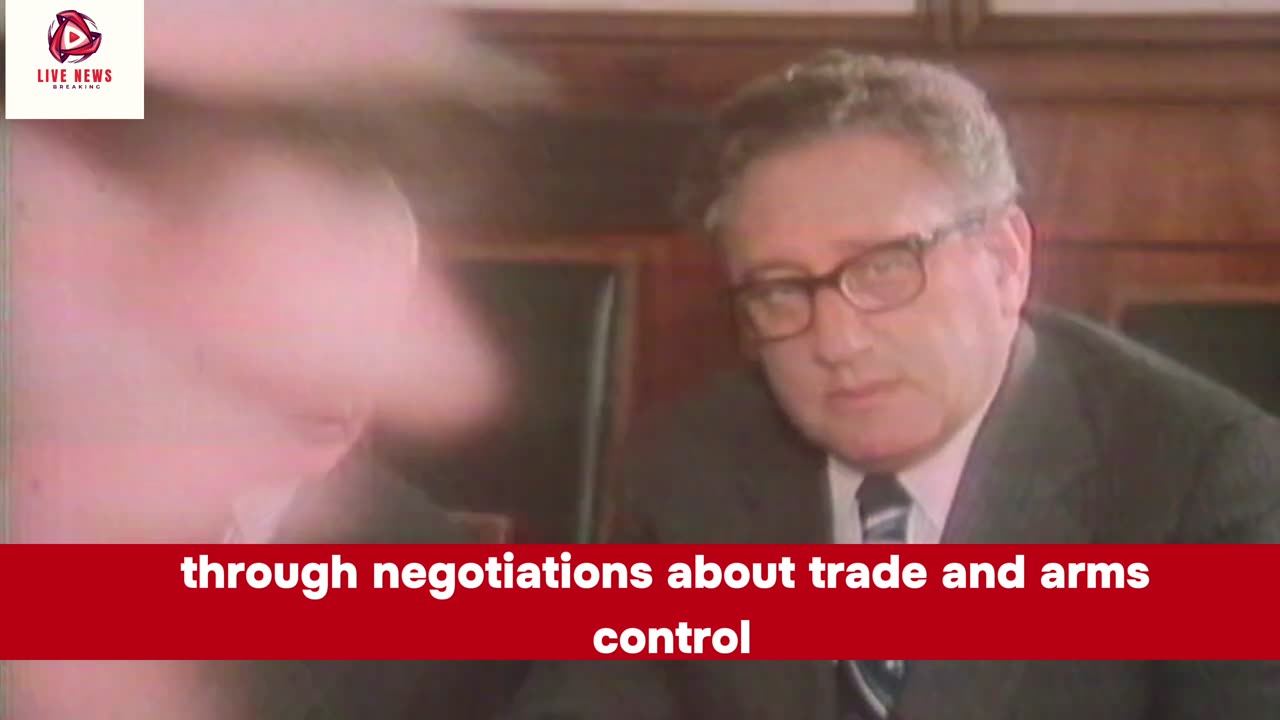Premium Only Content

Henry Kissinger_ Former US secretary of state dies aged 100 _ BBC News
Henry Kissinger: A Life of Diplomacy and Controversy
Introduction
Henry Kissinger, the former US Secretary of State who played a pivotal role in American foreign policy during the Cold War, has died at the age of 100. A towering figure in international relations, Kissinger was both revered and reviled for his actions, which spanned decades and shaped the course of history.
Early Life and Education
Born in Fürth, Germany, in 1923, Kissinger fled Nazi persecution with his family and immigrated to the United States in 1938. He served in the US Army during World War II and went on to study at Harvard University, where he earned a PhD in international relations.
Rise to Prominence
Kissinger's rise to prominence began in the 1960s when he served as a foreign policy advisor to Presidents John F. Kennedy and Lyndon B. Johnson. In 1969, he was appointed National Security Advisor by President Richard Nixon, a position he held until 1973.
Foreign Policy under Kissinger
Kissinger's time as National Security Advisor and later as Secretary of State was marked by a pragmatic and realist approach to foreign policy. He was a master of realpolitik, believing that nations should act in their own self-interest, even if that meant making compromises with adversaries.
Kissinger's most significant foreign policy achievements include:
Détente with the Soviet Union: Kissinger sought to thaw relations with the Soviet Union through a policy of détente, which involved increased dialogue, trade, and arms control agreements.
Opening Relations with China: Kissinger made secret trips to China in the early 1970s, paving the way for President Richard Nixon's historic visit to China in 1972. This opening of relations with China was a major diplomatic coup.
Ending the Vietnam War: Kissinger played a key role in negotiating the end of the Vietnam War, including the Paris Peace Accords of 1973.
Criticisms of Kissinger
Kissinger's foreign policy was not without its critics. He was accused of being too willing to compromise with authoritarian regimes and of turning a blind eye to human rights abuses. Some also argued that his realist approach to foreign policy was outdated and that he failed to adequately address the challenges of the post-Cold War era.
Despite the criticisms, Kissinger is widely considered to be one of the most consequential figures in American foreign policy history. He was a brilliant strategist and negotiator who played a pivotal role in shaping the course of the Cold War. His legacy is complex and controversial, but it is undeniable that he left a lasting mark on the world.
Henry Kissinger was a complex and controversial figure who played a major role in American foreign policy during the Cold War. His legacy is one of both achievement and controversy. He was a master of realpolitik who achieved significant diplomatic breakthroughs, but he was also criticized for his willingness to compromise with authoritarian regimes and for his realist approach to foreign policy.
-
 1:03:38
1:03:38
vivafrei
8 hours agoElection RECAP! Long-Count Chicanery! FULL Jan. 6 Pardons! Let's Mock Lichtman & MORE! Viva Frei
34.1K38 -
 LIVE
LIVE
Vigilant News Network
3 hours agoDoctors Drop Post-Election COVID Bombshell | Media Blackout
3,656 watching -
 14:13
14:13
Scammer Payback
12 days agoTelling Scammers Their Address
69.9K70 -
 DVR
DVR
Barstool Gambling
7 hours agoBig Cat and Co Sweat Out the Week 10 Sunday Slate | Barstool Gambling Cave
48.2K -
 2:49:36
2:49:36
The Jimmy Dore Show
2 days agoRumble Time Live w/ Jimmy Dore & Special Guests Roseanne Barr, Dr. Drew, Drea de Matteo & More!
508K613 -
 17:17
17:17
DeVory Darkins
19 hours agoKamala Post-Election BOMBSHELL Exposes $1 BILLION Campaign DISASTER
31.7K131 -
 19:52
19:52
Stephen Gardner
1 day ago🔥HOLY CRAP! Trump just did the UNTHINKABLE!!
44.7K442 -
 4:34:55
4:34:55
Pepkilla
7 hours agoBlackops Terminus Zombies Boat Glitch
115K6 -
 5:50
5:50
CapEx
19 hours ago $22.92 earnedWhat the Coming & Inevitable Sovereign Debt Crisis Means for YOU | CapEx Insider
108K25 -
 1:34:00
1:34:00
Tactical Advisor
8 hours agoAR15 Giveaway WINNER/Trump Winning | Vault Room Live Stream 008
73.2K27